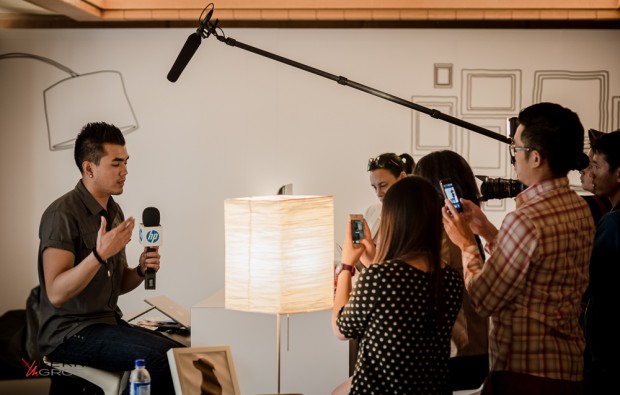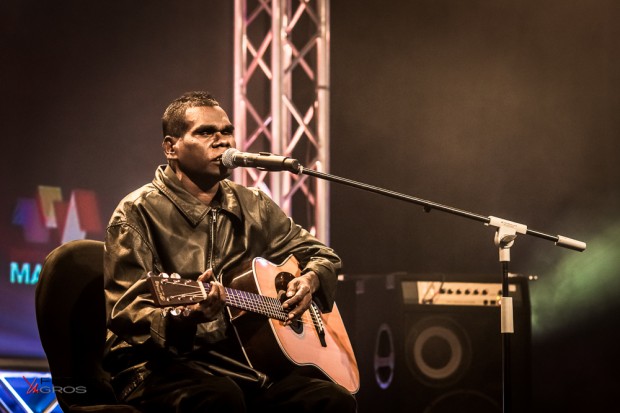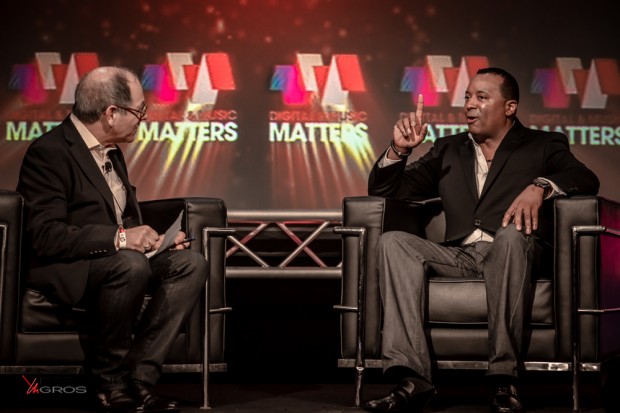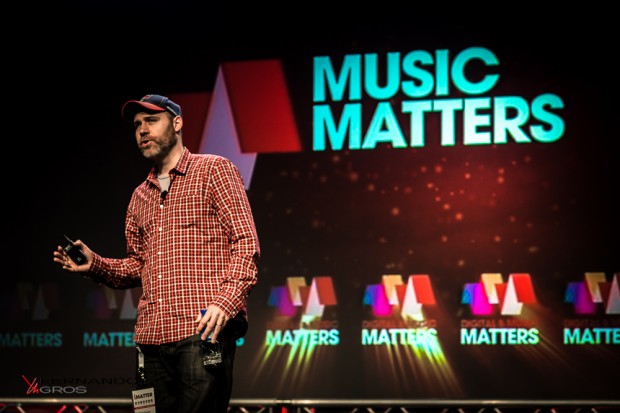MusicMatters 2013 – The Conference
Last week we had the MusicMatters conference here in Singapore. Actually, the conference has grown so big, it now goes by the name of AllThatMatters and this year there were five main components, MusicMatters, MusicMattersLive, the MusicMatters Academy, DigitalMatters and the newly added YouTubeFanfest. I won’t bore you with numbers, but it was an expansive […]
Last week we had the MusicMatters conference here in Singapore. Actually, the conference has grown so big, it now goes by the name of AllThatMatters and this year there were five main components, MusicMatters, MusicMattersLive, the MusicMatters Academy, DigitalMatters and the newly added YouTubeFanfest.
I won’t bore you with numbers, but it was an expansive programme and some parts of it were very successful indeed.
The YouTube Buzz
Every year one theme seems to stand out and dominate the programme. This year it was YouTube and the growing success of independent video creators. The week started with the YouTubeFanfest, a two night live-streamed showcase, that drew fanatical fans to the live venue and over 20 Million online viewers to the free webcast.
Sadly, none of my personal favourites (Felicia Day, Chase Jarvis and Ze Frank) were featured. But, the YouTubers who came were every bit as impressive. I doubt there’s a middle or high schooler in Singapore who hasn’t heard of Ryan Higa, for example. His YouTube channel boasts 8.4 Million subscribers and close to 1.5 Billion views. And, many of the kids who tune into channels like his, prefer to watch YouTube over regular television programming.

DigtialMatters
The talk about YouTube’s commercial and cultural success permeated the rest of the week and was a kind of critical filter for much of the DigitalMatters programme. DigitalMatters was a one-day programme this year, drawing speakers from television, advertising, internet services and video production.
If that sounds kind of broad, well it is. The DigitalMatters day was informative, with, knowledgable insiders, researchers and industry heavyweights. But, as a programme it lacked focus.
One highly publicised part of the day was a live Google Hangout with Amanda Palmer. I’m not a fan of interviews via video at conferences, but I am a fan of Amanda Palmer. However, with the programme running late and with the preceding talk, which had started well but soon descended into a protracted advertorial, dragging on, we were left with the amusing farce of Palmer tweeting her impatience for her segment to start.
Then, once she was streaming for a while, the connection broke and we were left with only a few minutes of her time. However, the brief interview did leave me with one of the most challenging insights of the week.
Palmer talked about how her musical journey had also been an adventure in finding and connecting with people. However, since she has built such a big following through blogging and social media, the passion for making music wasn’t what it once was. The penny dropped for me, because I’ve often struggled with the fact that blogging and social media gives a kind of immediate feedback and connection you can’t always get with music, especially if, like me, you are a studio-bound musician.
MusicMatters
The rest of the week was taken over my the now three-pronged MusicMatters. Even within the two days of the conference itself, there were plenty of extra workshops, industry roundtables, breakfasts and lunches. And, like most people, I had meetings tee’d up during the event and any downtime was spent catching up with acquaintances or making new ones.
Over the last two years, the programme itself has been tweaked quite a bit, with fewer panels and more one on one interviews and keynote speeches. There still plenty of time on the programme for in depth discussions of ticketing, live music, radio, music synchronisation and major trends in Asia, especially Japan and South Korea.

And, thankfully, there’s still plenty of music in MusicMatters, with six engaging performances, from girl groups Spica (South Korea) and Me N Ma Girls (Myanmar), entertaining rapper The Kid Famous (Canada), YouTube sensations Boyce Avenue (USA), electro-pop songstress Little Boots (UK), pop-punk rockers Faber Drive (Canada) and the brilliant, blind indigenous artist Gurrumul Yunupingu (Australia). The later being, for many people, the musical revelation and highlight of the week.
You can also read my review of the MusicMattersLive showcase including some photos of the best of the music I heard there.
The Saviour
This was my fourth MusicMatters and every year it seems something is held up as a potential saviour for the recorded music industry in Asia. In 2010 it was dial-back ringtones. Then it was streaming services and last year, everyone was abuzz with locker services.
See the pattern?
This year, the knight in shining armour was iTunes arrival in Asian markets, along with other global services, like Deezer. I’m not sure I’ve heard the word extrapolate used so many times in a music conference, but it was there again and again, in speaker after speaker – apparently, if we extrapolate from iTunes success in other markets, we will see a dramatic growth in digital music sales in Asia.
This was most evident in Sandy Monteiro’s brief survey of recorded music sales in Asia, which turned out to be something of a mea culpa for the major labels’ failure to see the writing on the wall, in terms of changing consumer preferences. We don’t yet know if Asian consumers will jump on the iTunes bandwagon the way they have in other regions. But it’s fascinating nonetheless to see industry heavyweights admitting the proud prognostications of only a few years ago were fundamentally wrong.
Reality Matters
The conference’s best moments were wonderfully realistic. There were two remarkably frank and inspiring one on one interviews, with Rob Wells President of Global Digital Business for Universal Music and with Johnny Wright, the manger behind Justin Timberlake, Akon and the Jonas Brothers (and formerly Britney Spears and the Backstreet Boys).

There also very solid individual speeches, including an excellent summary of global trends from CEO of IFPI, Frances Moore, a witty and entertaining analysis of recent hit songs by acclaimed songwriter (and songwriting coach) Ralph Murphy and an excellent (and much needed) presentation on Direct-To-Fan sales by Benji Rodgers, founder and head of PledgeMusic.

Australia Reaches Out
One noticeable feature of this year’s conference was the size of the Australian contingent; with more bands, industry representatives, press and musicians making the trip from Down Under than in any previous year. There was even a panel focussed on opportunities for collaboration between Australia and the rest of Asia (and some great Australian experiences were also shared on the radio panel).
I’ve been increasingly impressed with the efforts of Sounds Australia and the other groups supporting the development and export of Australian music. But, this year there was a definite buzz around the Australian contingent.
MusicMatters Academy
At each MusicMatters I’ve attended, there has been sessions aimed at musicians. It’s a feature the organisers have increasingly put more emphasis on. This year, in collaboration with sgMuso and Coalition Music, the MusicMatters Academy was born. A three day programme, run in parallel with MusicMatters, the Academy gave musicians a chance to attend mentor sessions, hear private seminars and get schooled on the fundamentals of building a music career.
My understanding was 100 free passes were made available, to ensure as many locally based musicians as possible could attend (I wasn’t one of them, I’m a full-fee paying delegate). Sadly, the numbers didn’t seem to be anywhere near that, based on what I saw.
But, the quality of the programme and the impression it made on every musician I spoke to cannot be denied. Coalition Music are a modern management company who take artist development very seriously and espouse an Artist-Entrepreneur model (similar to Berklee and something I’ve written about before). The MusicMatters Academy has all the elements to transform a musician’s potential for success and I only wish something like this had been around when I was starting out.
The Future Of Music
When I came back to music full-time, in 2004, I immersed myself in the work of futurists like David Kusek and Lawrence Lessig. It seemed so obvious, even back then, that the recorded music industry was facing inevitable change and the internet was going to rewrite the rules of music consumption.
While the intervening years have been rough on the recorded music industry I still believe this is an extraordinary time to be a musician, or in any kind of creative field. The idea that you can, with a device that fits in your pocket, record music or video and share it with the whole world still blows my mind.
However, this is the reality we live with and I have to applaud the organisers of MusicMatters for again trying orient the conference towards our present reality. In the space of four years the conference has changed and evolved in a quite dramatic fashion. One can only hope it will continue to do so into the future.




